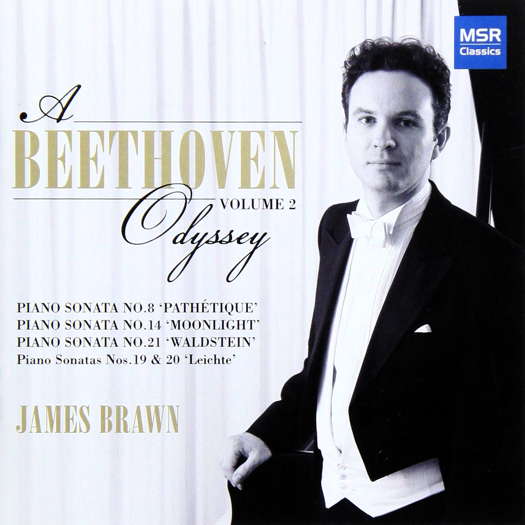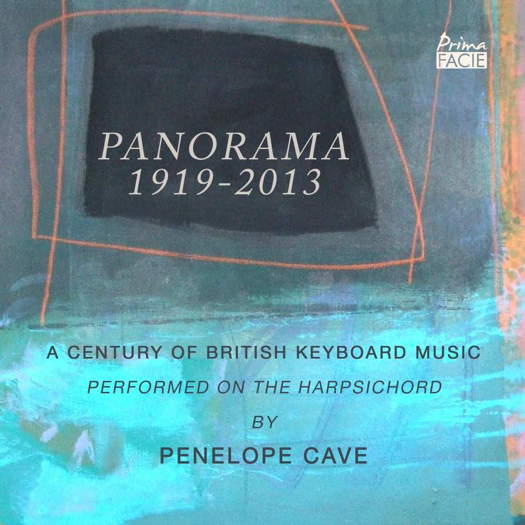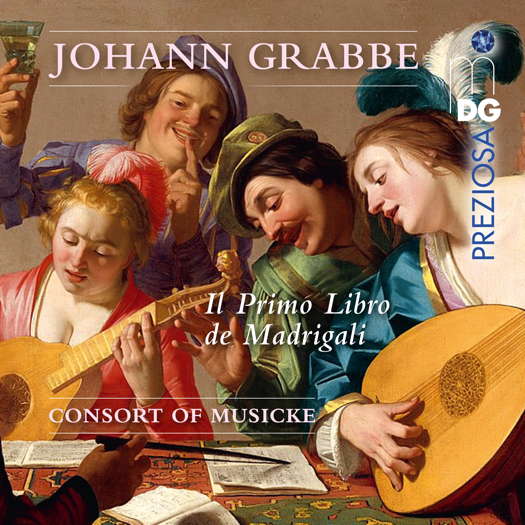 DISCUSSION: What is a work? John Dante Prevedini leads a discussion about The performing artist as co-creator, including contributions from Halida Dinova, Yekaterina Lebedeva, Béla Hartmann, David Arditti and Stephen Francis Vasta.
DISCUSSION: What is a work? John Dante Prevedini leads a discussion about The performing artist as co-creator, including contributions from Halida Dinova, Yekaterina Lebedeva, Béla Hartmann, David Arditti and Stephen Francis Vasta.
 SPONSORED: CD Spotlight. Perfect Indeed - More Beethoven from James Brawn, recommended by Andrew Schartmann.
SPONSORED: CD Spotlight. Perfect Indeed - More Beethoven from James Brawn, recommended by Andrew Schartmann.
All sponsored features >>
 SPONSORED: CD Spotlight. A Fantastic Collection. Penelope Cave Panorama CD. Little-known harpsichord gems, strongly recommended by Alice McVeigh.
SPONSORED: CD Spotlight. A Fantastic Collection. Penelope Cave Panorama CD. Little-known harpsichord gems, strongly recommended by Alice McVeigh.
All sponsored features >>

A Brilliant Issue
GERALD FENECH wholeheartedly recommends madrigals by German composer Johann Grabbe
'Emma Kirkby's glowing soprano alone makes this recording not only an absolute delight but also a listening experience in a class of its own.'
Johann Grabbe (1585-1655) was born a hundred years before J S Bach, so one can consider his music as being the catalyst, with those of others, for what was to come at the height of the Baroque era. A child prodigy, he became a member of the Buckeberg Court Choir at eleven, learned the organ from Cornelius Conradus, succeeded him as organist and was then, like Heinrich Schütz, awarded a scholarship to study with Giovanni Gabrieli in Venice. Grabbe returned to Schloss Brake, the home of the Buckeberg Court Choir, but shortly thereafter Conradus died. Appointed as the Vice-Kappellmeister to Count Ernest III, he was able to learn about instrumental music of England as Brade and Simpson were employed at Buckeberg.
The madrigals which Grabbe composed show currency with Italian styles and flowing shapes in the structures of his melodic lines. Bar one book of madrigals, Grabbe's music had almost been completely destroyed by time, war and fire.
After discovering the high quality inventiveness and skill of Il Primo Libro de Madrigali, Anthony Rooley and his Consort of Musicke were convinced Grabbe was a composer of genuine international stature, equal to Monteverdi; only his limited oeuvre prevents him from being recognized as the great master he truly is. Grabbe's Franco-Flemish vocal polyphony, combined with Italian and English influences, became style-defining and was greatly admired by his contemporaries such as Heinrich Schütz.
Listen — Johann Grabbe: Felici amanti, udite (Il Primo Libro de Madrigali)
(MDG 102 2332-2 track 1, 0:00-0:43) ℗ 2024 MDG :
The best known feature of madrigal composition is that of word-painting, and in this aspect Grabbe reveals immense wit and playfulness. After the invitation to all lovers, the texts take us through a series of amorous calamities, pleadings, tortures, anguish and occasional blissful pleasures, to the final rejection where the lady of his desires declares him 'insano'.
Listen — Johann Grabbe: Ardi e gela
(Il Primo Libro de Madrigali)
(MDG 102 2332-2 track 19, 4:11-4:55) ℗ 2024 MDG :
This sparkling jewel is being issued to celebrate the eightieth birthday of early music pioneer Anthony Rooley, whose indefatigable efforts have unearthed many a treasure for our enjoyment. Indeed, Johann Grabbe's Il Primo Libro de Madrigali is a wonderful masterpiece and a fitting tribute to both composer and interpreters.
Listen — Johann Grabbe: Ahi, misera mi vita
(Il Primo Libro de Madrigali)
(MDG 102 2332-2 track 11, 0:00-0:53) ℗ 2024 MDG :
Emma Kirkby's glowing soprano alone makes this recording not only an absolute delight but also a listening experience in a class of its own. The Consort of Musicke's rendition is indeed breathtaking in every sense of the word; it also gives the listener a chance to enjoy the hilarious behind-the-scenes insights at the musical mischief of this unique vocal ensemble.
Listen — Johann Grabbe: Dolce spirto d'amore
(Il Primo Libro de Madrigali)
(MDG 102 2332-2 track 15, 1:16-1:48) ℗ 2024 MDG :
A wholly committed undertaking dedicated to the fascinating art of a still neglected composer whose music deserves to be more appreciated but, above all, more diffused in modern musical circles. A brilliant issue, superbly recorded and annotated which I recommend wholeheartedly.
Copyright © 16 November 2024
Gerald Fenech,
Gzira, Malta



